ERC Advanced Grants

Prof. Dr. Frank Würthner (2025)
For the second time, Würzburg chemistry professor Frank Würthner has received a prestigious award from the European Research Council: the ERC Advanced Grant is endowed with 2.5 million euros. Frank Würthner is pursuing an ambitious goal: he wants to synthesise schwarzites, novel carbon-based nanomaterials with unique properties. In all likelihood, these materials can be used in the future as three-dimensional conductive porous carbon nanotube and graphene analogues for innovative batteries or as filter systems for gases and liquids. Mehr

Prof. Dr. Bernhard Nieswandt (2024)
Professor Bernhard Nieswandt is researching a cellular mechanism in blood platelets that appears to play an important role in inflammatory diseases. He has been awarded an ERC Advanced Grant for his work. More
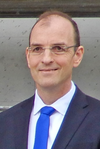
Prof Dr. Tobias Brixner (2024)
The Würzburg physical chemist Tobias Brixner has been awarded an ERC Advanced Grant for his pioneering work in researching multiple electronic excitations. This makes Brixner one of the few researchers to have been awarded an ERC grant twice. In 2013, he already received an "ERC Consolidator Grant" (worth 2.7 million euros) for the career phase from six to twelve years after his doctorate, and now the new award in the competition for excellent research ideas at all career phases. More
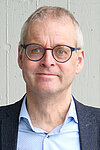
Prof Dr. Martin Eilers (2023)
For the second time, Würzburg cancer researcher Professor Martin Eilers has received one of the prestigious ERC Advanced Grants. The award is endowed with 2.5 million euros. In his project SENATR - Sensing Aberrant Transcription by MYC Multimers, Eilers wants to investigate how MYC proteins support the development of tumors. More
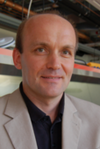
Prof. Dr. Vladimir Dyakonov (2022)
With 2.5 million euros from the European Research Council, Professor Vladimir Dyakonov will be able to pursue the development of a novel quantum sensor: The physicist was awarded an ERC Advanced Grant. More
Prof. Dr. Thomas Rudel (2019)
Professor Thomas Rudel receives a high-ranking award from the European Research Council. The microbiologist will receive 2.5 million euros for a new project to investigate pathogenic Chlamydia. More...
Prof. Dr. Frank Würthner (2017)
Würzburg chemist, Frank Würthner, has been awarded an Advanced Grant of the European Research Council worth EUR 2.5 million. He wants to use the money to push the conversion of solar energy to fuel. More...
Prof. Dr. Laurens Molenkamp (2016)
Top research pays off: After 2011, Professor of Physics Laurens Molenkamp from the University of Würzburg has been awarded a second Advanced Grant from the European Research Council worth 2.5 million euros. More...
Prof. Dr. Holger Braunschweig (2015)
Chemist Holger Braunschweig has joined an elite club of European researchers who have been awarded a second "Advanced Grant", the largest research grant offered by the European Research Council (ERC). Braunschweig will receive 2.5 million Euro in order to explore unprecedented new bonding possibilites of the element boron.
Prof. Dr. Klaus Schilling (2012), retired professor
Once again a top award has been given to a researcher of the University of Würzburg: Computer scientist Klaus Schilling wins a Euro 2.5 million research grant to study innovative technologies for picosatellites that work together. The grant is awarded by the European Research Council.


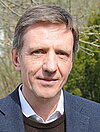
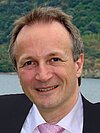
![Prof. Dr. Laurens Molenkamp, Physikalisches Institut, Universität Würzburg, bei der Verleihung der Stern-Gerlach-Medaille durch die Deutsche Physikalische Gesellschaft. (Foto: DPG / Peter Grewer) [Translate to Englisch:] Prof. Dr. Laurens Molenkamp (Foto: DPG/ Peter Grewer)](/fileadmin/_processed_/6/6/csm_molenkamp-erc2-w_db3e343727.jpg)
![[Translate to Englisch:] Professor Martin Eilers, Uni Würzburg](/fileadmin/_processed_/2/6/csm_martin-eilers-w_fcd08a4a7c.jpg)
![Prof. Dr. Holger Braunschweig, Universität Würzburg [Translate to Englisch:] Prof. Dr. Holger Braunschweig](/fileadmin/_processed_/3/d/csm_Braunschweig_holt_erneut_ERC_db8d246d33.jpg)
![[Translate to Englisch:] Klaus Schilling, Uni Würzburg](/fileadmin/_processed_/a/2/csm_schilling_05_b511d855ed.jpg)
![[Translate to Englisch:] Holger Braunschweig, Uni Würzburg](/fileadmin/_processed_/d/8/csm_braunschweig_447fda498a.jpg)
![[Translate to Englisch:] Laurens Molenkamp, Uni Würzburg](/fileadmin/_processed_/6/b/csm_molenkamp_9299bfb8a1.jpg)
![[Translate to Englisch:] Rainer Hedrich, Uni Würzburg](/fileadmin/_processed_/f/4/csm_hedrich_8995143450.jpg)
![[Translate to Englisch:] Martin Lohse, Uni Würzburg](/fileadmin/_processed_/9/0/csm_lohse_b368917f5b.jpg)
